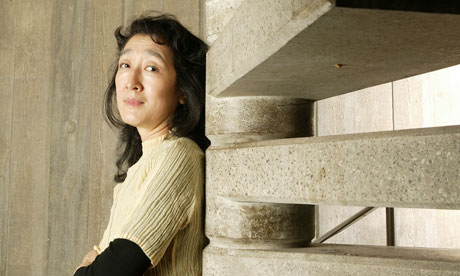
What got you started?
During the second world war, my father somehow got the idea that his children should learn the piano. After the war, my mother picked him up at Tokyo harbour – he was a diplomat and had been away for six years, first in Germany, then in America, where he was imprisoned for three months. The first thing he said was: "Why aren't the children having piano lessons?" So my sister and brother started. Then, aged three, I did too and never stopped.
What was your big breakthrough?
Performing the complete series of Mozart piano concertos in London and Tokyo, and then recording them. It was very much a matter of timing: the record company had wanted me to record Schubert, but [the film] Amadeus had just come out, and Mozart was very much in vogue. Without Amadeus, perhaps nobody would have been interested.
Why do you think some people have difficulty with classical music?
Because they haven't started early enough. The earlier you start with classical music, the more you understand it. But it is also our responsibility, as musicians, to draw audiences in – to express what it is in the music that's so moving and touching and specific.
Is there an art form you don't relate to?
Anything noisy. Even visual art can be noisy. It's not just a matter of colour: there are some fantastically colourful artists who are wonderful – Van Gogh, Rembrandt and his use of light. But there are other, noisy artists.
What has been your biggest challenge?
Sudoku number 10. That is the highest grade of sudoku and it's bloody difficult. I am at number nine.
What work of art would you most like to own?
I don't want to possess anything that is important – I want it to be somewhere that everybody can go to. But if I were forced to, I'd choose The Little Street, a teensy painting by Vermeer, or one of Van Gogh's paintings of clogs. They're self-portraits, really. I couldn't face his face every day, but I'd like to face his shoes.
What one piece of music would work as the soundtrack to your life?
Mozart's Marriage of Figaro. It has everything that's central to people's lives: joy, sorrow, disaster, jealousy, longing and stupidity. Only birth and death are missing.
What's the worst thing anyone ever said about you?
A French critic once said about one of my Mozart piano concertos: "She plays like a Japanese sewing machine." I'd been told before that I was boring, and many other awful things, but I'll always remember that.
In short
Born: Atami, Japan, 1948.
Career: Has made acclaimed recordings of Mozart, Beethoven, Schubert and Chopin. Performs Schubert's final three piano sonatas at the Royal Festival Hall, London (0844 875 0073), on 23 April.
Low point: "My mid-20s. I was winning competitions galore, but I knew deep down that I was nothing."
High point: "My late 20s onwards. I found my voice – now every day is a day of discovery."

